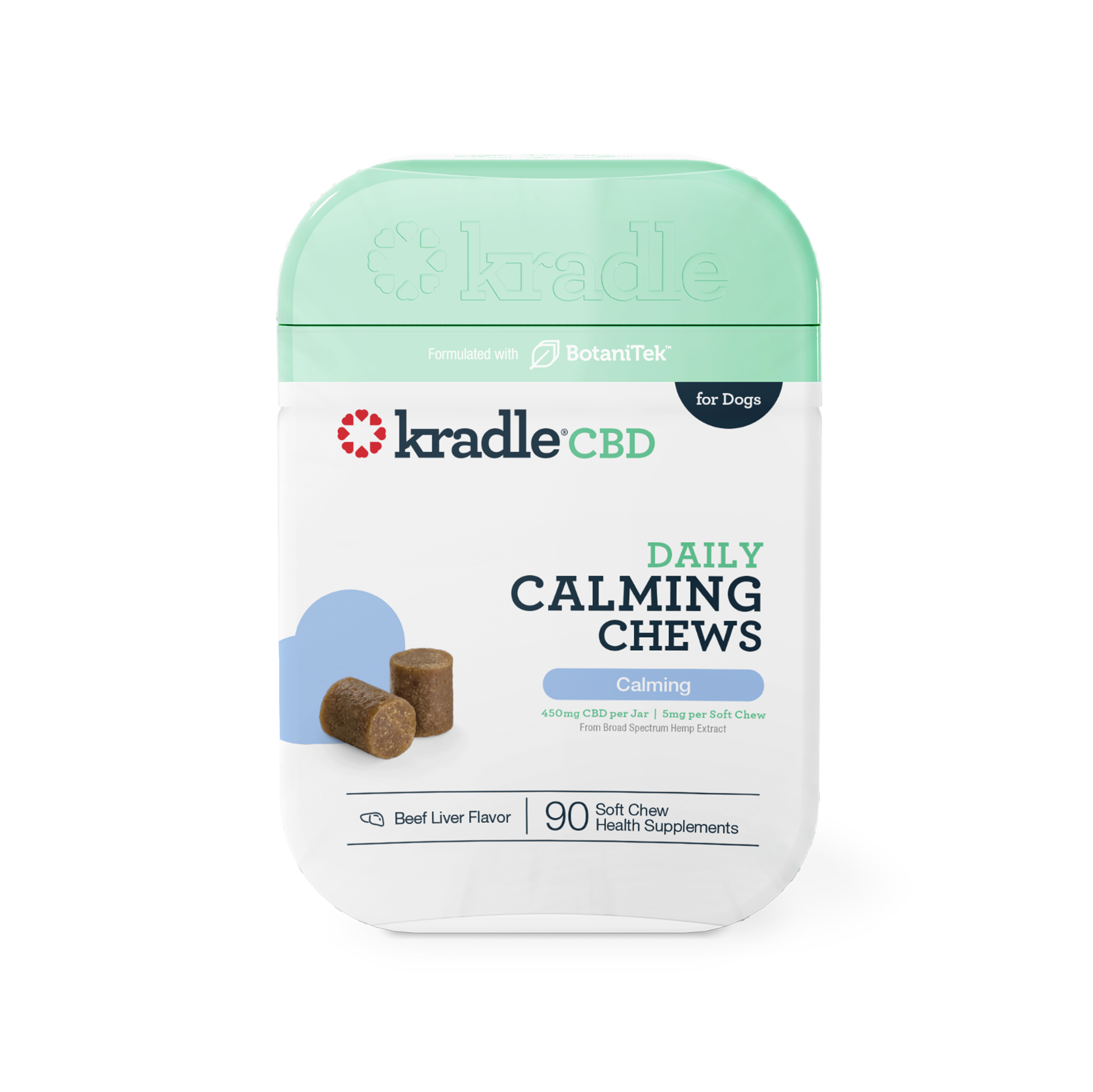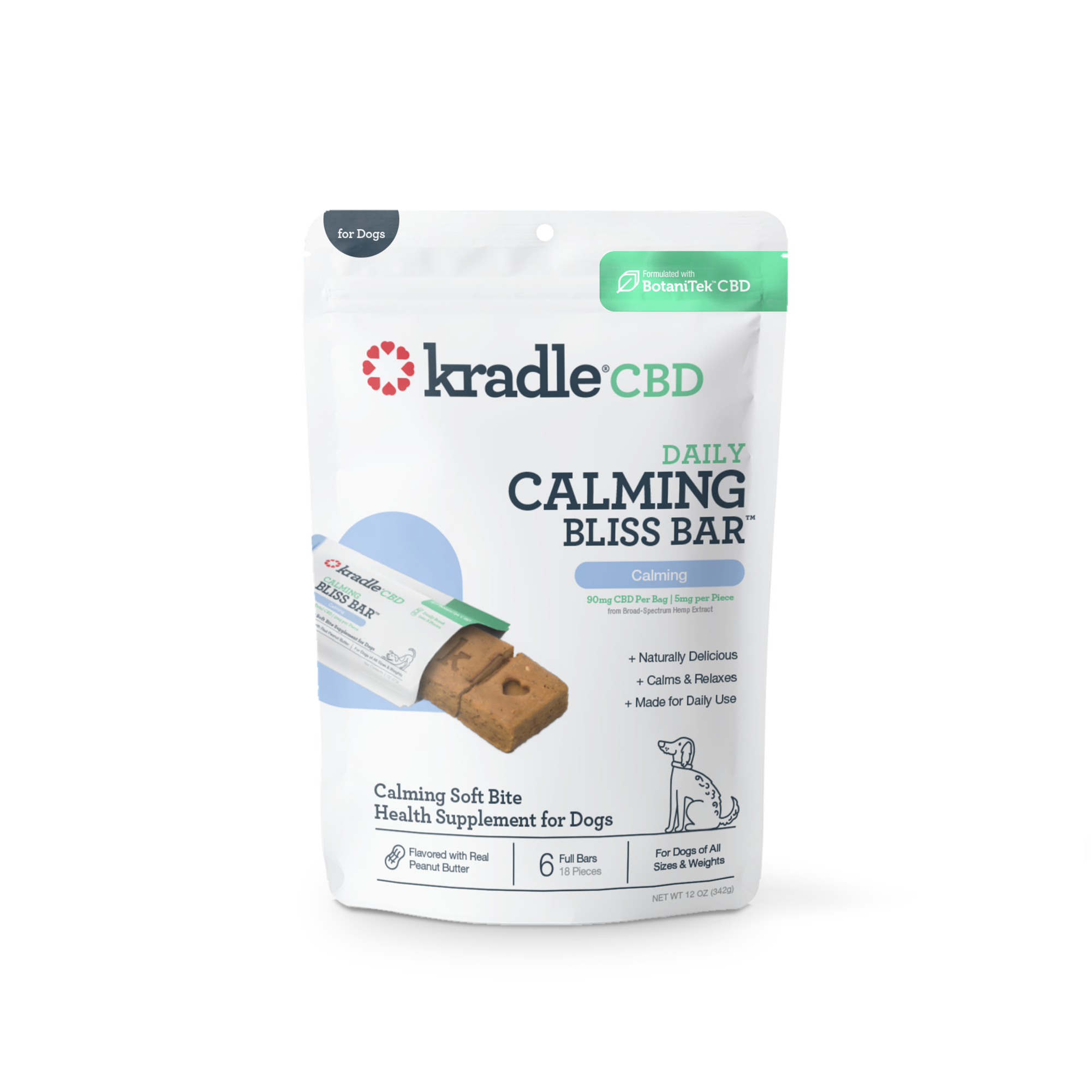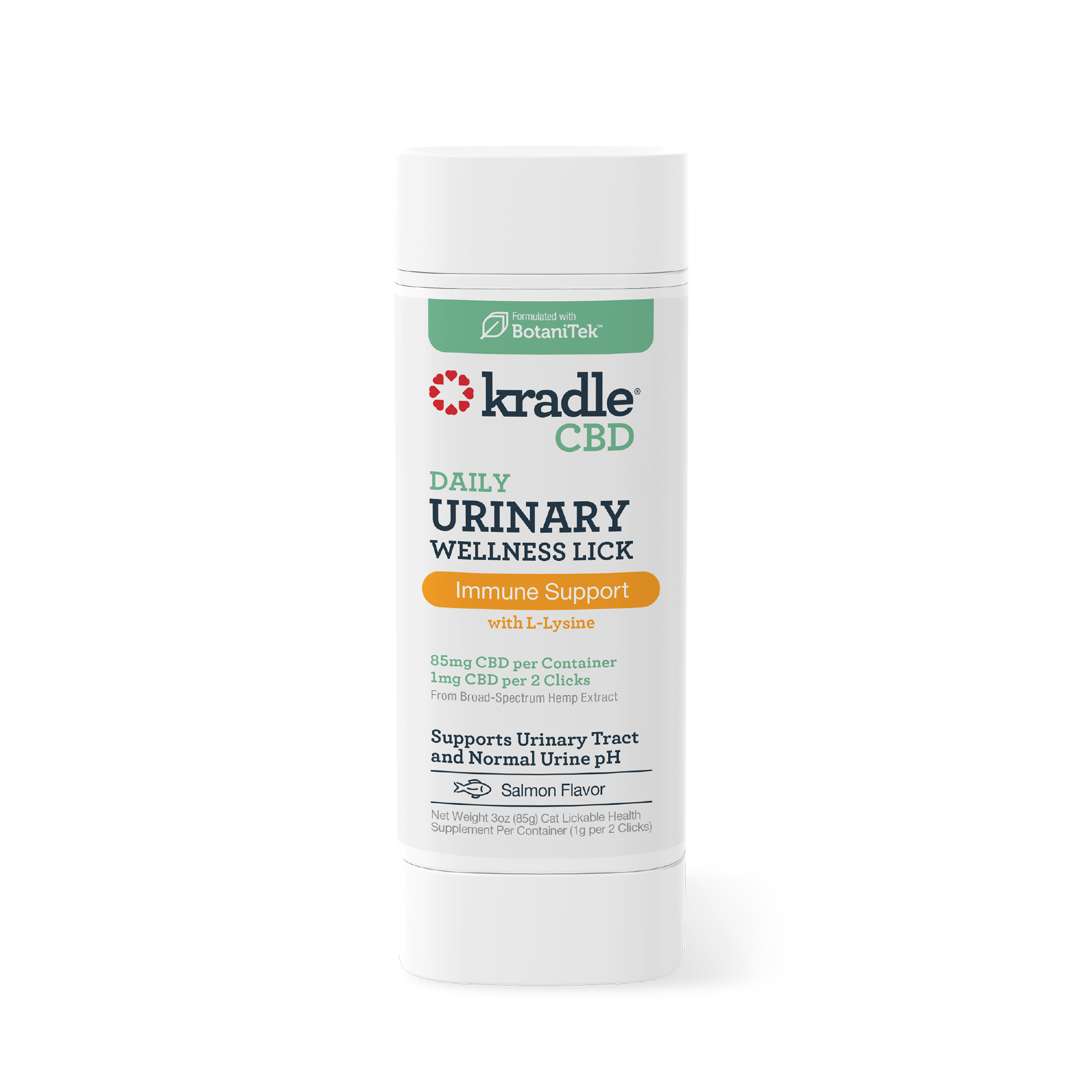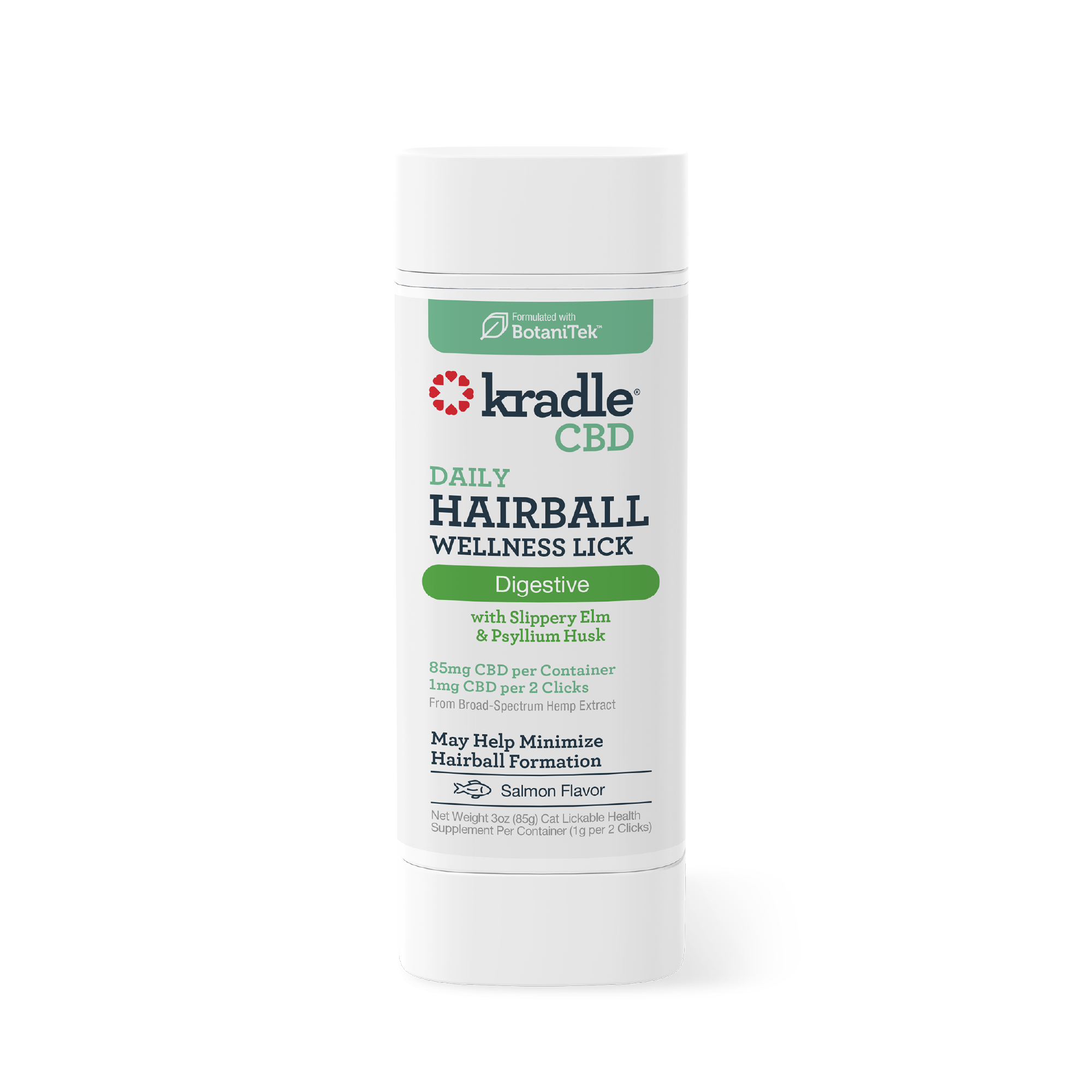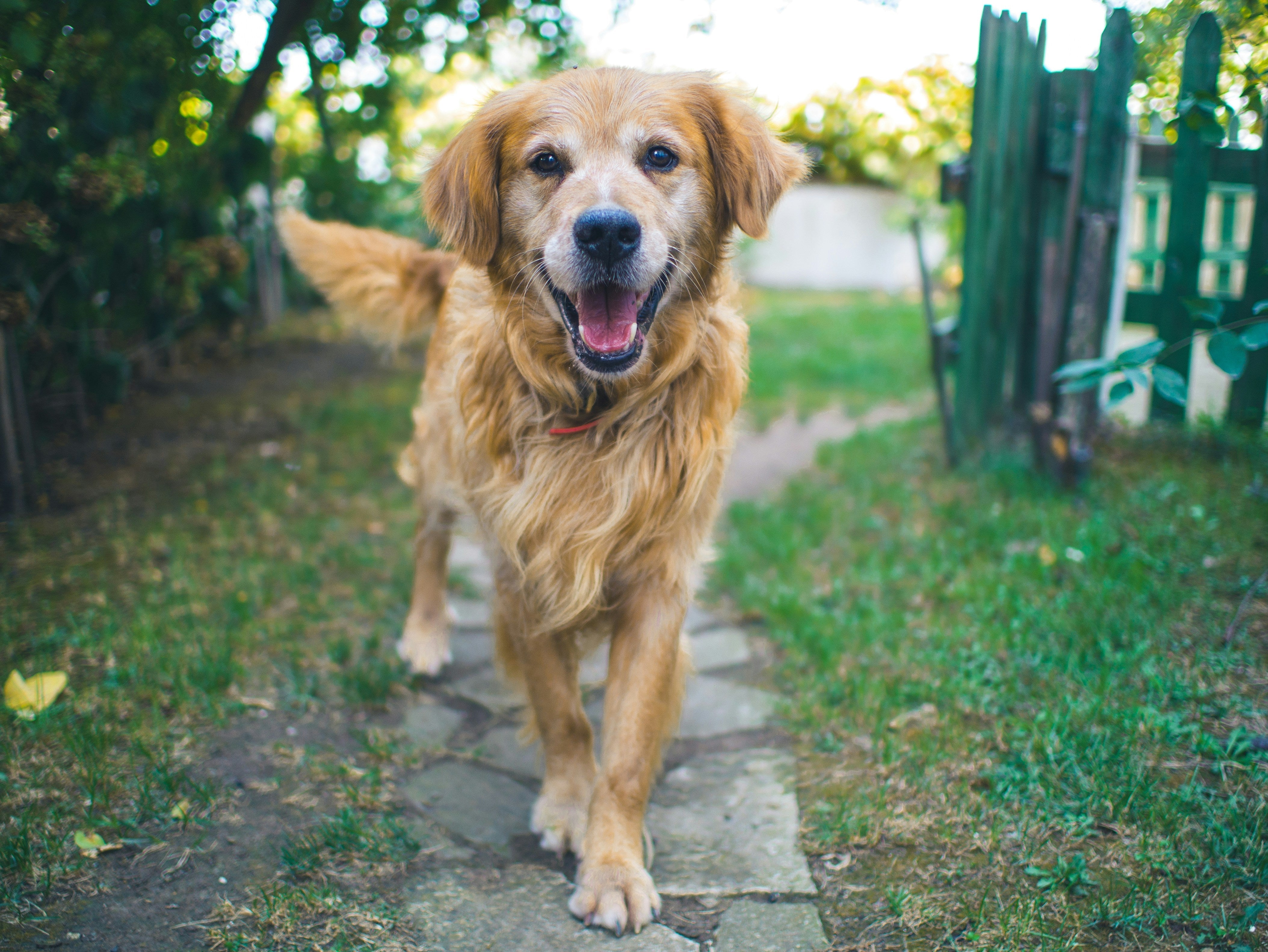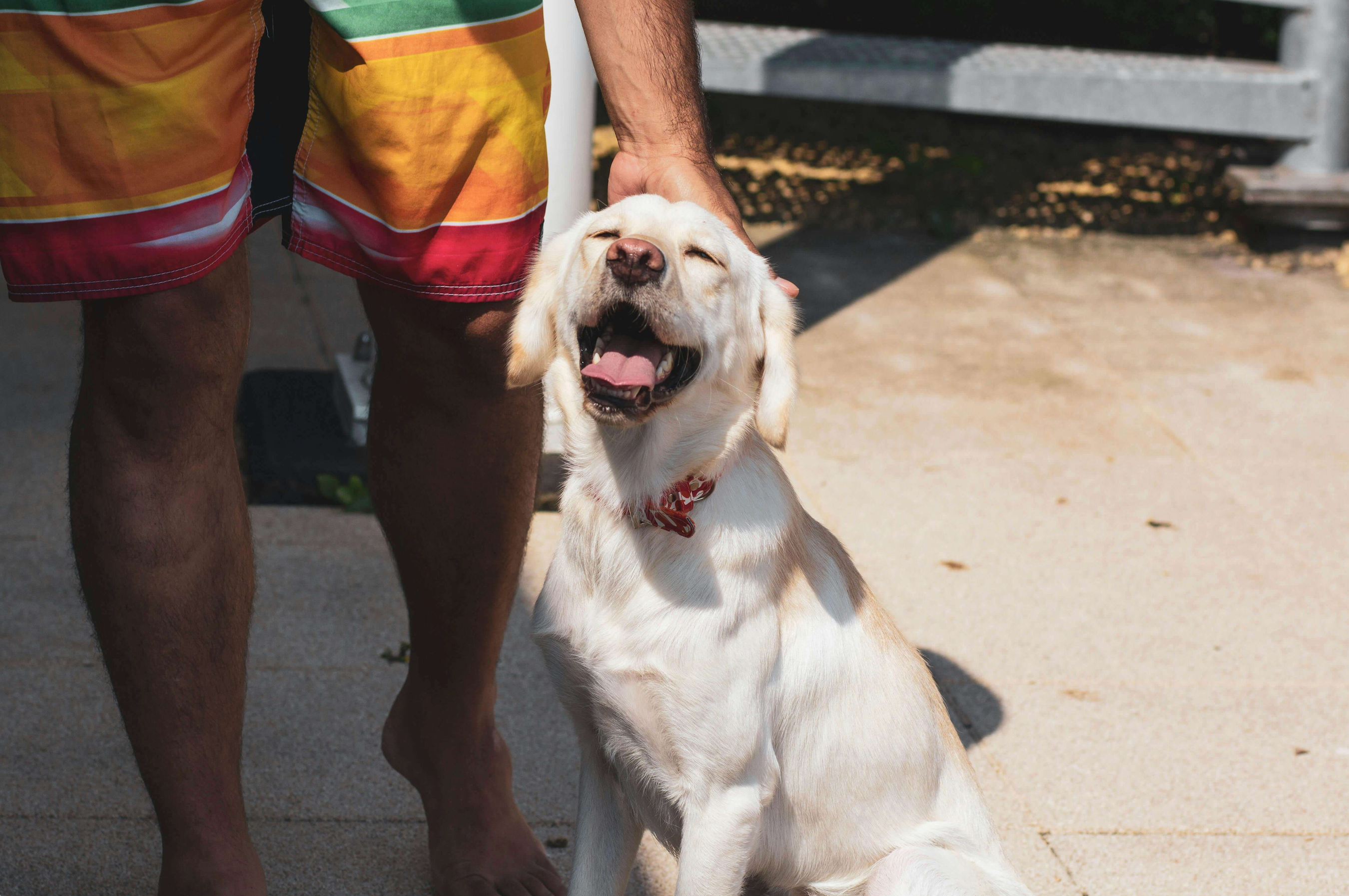
Good Eats to Good Moods: The Link Between Diet and Dog Anxiousness
Anxiety in dogs negatively impacts both pets and their human parents. Not only can anxiety lead to destructive behaviors, but anxiousness in dogs can also make it difficult for them to relax, enjoy activities they once loved and bond with their human companions.
Fortunately, there are things that you can do for your pooch if they experience anxiety, and increasingly, experts are advising that healthy food for dogs may help reduce symptoms. Written for anyone who has ever asked "How do you calm an anxious dog?" or wondered what to give an anxious dog, this piece explores potentially beneficial nutrients and dog food for anxiety.
Dog Food Ingredients to Be Aware Of
First and foremost, when considering what is the best dog food for anxiety, noting which ingredients are missing from the labels is as important as which ones it contains. Some common ingredients in commercial dog foods may contribute to anxiety or overall poor health.
To choose the right commercial food for your pet, read labels carefully, and be wary of products that contain artificial additives, preservatives and fillers. Signs of sensitivities and food allergies to these synthetic ingredients include diarrhea and vomiting and itching of the ears, paws or skin.
Good Vitamins and Nutrients for Dogs
As with human food, the best dog diet includes vitamins, minerals and other nutrients that your pet needs. A healthy diet helps to support overall health and mental well-being in dogs. Some essential nutrients that are generally thought to contribute to the best diet for dogs include:
- B-complex vitamins: B vitamins, such as niacin and vitamin B12, help dogs' nervous systems function properly. They also play an important role in metabolism, the process by which dogs convert food into energy to power their bodies.
- Essential fatty acids: A type of healthy fat, omega-3 fatty acids may contribute to energy production, brain health, skin and coat health, growth and development and cellular health in dogs.
- Probiotics: These beneficial bacteria contribute to digestive health. Research has found that probiotics may help ease anxiety and aggression in dogs.
- Tryptophan: This amino acid has been shown to improve symptoms in anxious dogs due to the calming effect it has on the body.
- Magnesium: An essential mineral, magnesium helps control muscle relaxation and aids in nervous system function.
- Diet Tips to Help with Anxiousness in Dogs
- Thanks to their nutrient profile, certain foods may benefit anxious dogs. The following foods are known to contain nutrients that may ease anxiety symptoms. Before adding them to your dog's daily eating plan, be sure to consult your veterinarian for individualized advice about what the best dog diet is for your pet.
- Raw goat's milk provides probiotics, which may soothe the digestive system and ease anxiety.
- Turkey is rich in the calming amino acid tryptophan.
- Organic, grass-fed beef liver is incredibly rich in essential nutrients, including vitamin B12 and iron needed for nervous system health.
- Spinach is an excellent source of magnesium, the mineral known for its calming properties.
- Salmon contains omega-3 fatty acids necessary for brain health.
- Eggs supply protein and amino acids, which play an important role in muscle and nervous system health.
- Sweet potatoes are high in fiber and supply complex carbohydrates that allow dogs to produce energy while also helping to regulate blood sugar levels.
How to Incorporate Healthy Foods Into Your Dog's Diet
To begin modifying your dog's diet and incorporating more foods that may be beneficial for anxiety, follow these tips:
- Customize portion size: Healthy portion size is important for weight management. How many calories your dog needs per day depends on their age, weight, size, breed, level of physical activity and other factors. Your vet can give you guidelines on how many calories you should strive to feed your pet daily, and you can use this information as a guide when determining portion size.
- Introduce one new food at a time: To monitor how your dog responds more easily, introduce one new food at a time. Then, keep an eye out to see if you notice any change in their anxiety symptoms. Wait a few weeks before adding a second food to their diet.
- Watch out for adverse reactions: Like humans, dogs can have food allergies and sensitivities. After introducing a new food, be on the lookout for digestive problems, itching and other unusual symptoms. If you notice any, discontinue the new food.
- Mix new foods with familiar ones: If your pooch is picky, try stirring a new food into their favorite dog food. Add just a little at first to give them a chance to adjust to the new texture and taste. Then, gradually incorporate more of the healthy food over time.
Common Stress and Anxiousness Symptoms in Dogs
Being able to spot the symptoms of an anxious dog can help you take action and start helping your pet sooner. Some symptoms of anxiety to look for include:
- Destructive behaviors
- Aggression
- Defecating and/or urinating indoors
- Drooling
- Depression
- Excessive barking
- Panting
- Pacing
- Repetitive behaviors
- Restlessness
How Kradle Can Help
Providing foods that are healthy for dogs may help calm your anxious pet while also ensuring they get the nutrients they need to thrive. Try implementing the healthy diet for dogs described above and see how your pet responds. With your veterinarian you can also discuss what is the best healthy food for dogs, and which option is the right fit specifically for your pooch.
As you modify your dog's diet, consider giving Kradle CBD and Naturally Calming products a try. Our melts, chews, bars and other products may help your dog better cope with external stresses to maintain a normal and relaxed disposition. Shop our product selection today to discover solutions for your fur baby.

